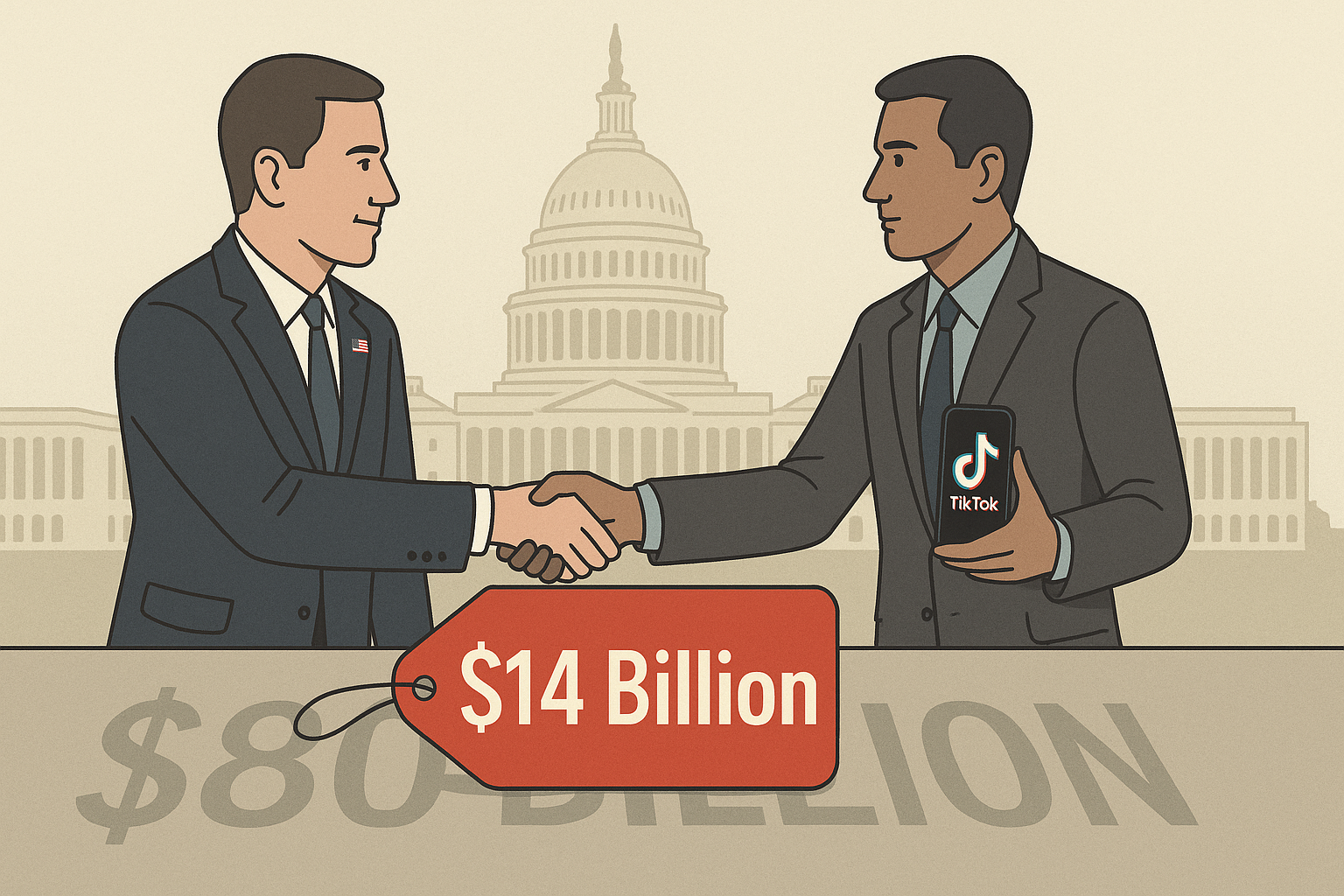President Trump has finally inked the executive order keeping TikTok alive in America. The deal? ByteDance keeps under 20% ownership while a new joint venture takes the wheel for U.S. operations. But here's the kicker—Vice President JD Vance is claiming this values TikTok's American business at a mere $14 billion.
Fourteen. Billion. Dollars.
I nearly choked on my morning bagel when I saw that figure. Having covered tech valuations since the frothy days of 2020, I can tell you this doesn't pass the smell test.
Let's get some perspective here. ByteDance—TikTok's parent—was valued around $300 billion at its peak. Even after tech stocks took a beating worthy of a heavyweight championship match, most analysts still peg ByteDance somewhere north of $200 billion. And TikTok? It's the golden goose in ByteDance's portfolio, with America being its most lucrative market.
So what in the world is happening with this valuation?
Look, there are several possibilities, and none involve straightforward math (or reality, for that matter).
First off, we're probably watching what I call "valuation theater"—a performance where politicians announce numbers that serve their narrative while bearing little resemblance to financial reality. The administration gets to thump its chest about driving a hard bargain, and potential investors salivate at what looks like the discount of the century. It's like watching someone haggle over a Lamborghini by insisting it's actually just a fancy golf cart with nice rims.
Another possibility? Financial sleight-of-hand.
That $14 billion might only represent the visible part of a deal iceberg—the equity component—while underwater lurks a complex structure of contingent payments, revenue-sharing arrangements, and other financial instruments that don't make the headlines. I've seen this movie before. During my years covering Wall Street deals, what appeared to be straightforward acquisitions often involved more financial engineering than MIT's entire curriculum.
Then there's the "regulatory discount." When government watchdogs are breathing down your neck, valuations typically take a hit. The TikTok emerging from this deal will face unprecedented oversight and restrictions. Imagine buying a racehorse but being told it can only run while carrying three government inspectors and filing paperwork every furlong—you'd probably offer less than market value too.
But even with these factors... $14 billion? C'mon.
TikTok reportedly generated about $16 billion globally last year, with roughly half—$8 billion—from American users. High-growth tech companies with TikTok's engagement metrics typically command premium multiples. A conservative 10x revenue multiple for just the U.S. business suggests an $80 billion valuation.
So $14 billion represents something like an 80% discount from reasonable financial fundamentals. That's not a haircut—it's financial decapitation.
(And yes, I've double-checked these figures with industry analysts who confirmed my math isn't wildly off base.)
Why does this matter beyond ByteDance's balance sheet? For starters, it sets a troubling precedent for forced divestitures of foreign-owned tech companies. Future administrations might point to this case as justification for similar interventions at similarly depressed valuations. It's also a flashing warning signal to international investors about the risks of building valuable businesses in American markets.
The real explanation? Politics, not finance.
The administration needed a figure low enough to claim victory against a Chinese company but high enough to avoid accusations of outright theft. $14 billion threads that needle—it sounds substantial to the average voter while being far below actual market value to please the "tough on China" crowd.
China still needs to give this arrangement its blessing, and Beijing might balk at what amounts to a fire sale. If I were advising ByteDance (they haven't called, surprisingly), I'd highlight this extraordinary discount and suggest alternative structures that might preserve economic value while addressing security concerns.
Will this deal actually happen? That's the $14 billion—or more accurately, the $80 billion—question.
The intersection of geopolitics and corporate finance often produces strange results, but this valuation stretches credibility beyond its breaking point. Sometimes, it seems, a company is worth whatever those with political power declare it's worth.
And that might be the most valuable—and disturbing—lesson of this entire saga.
